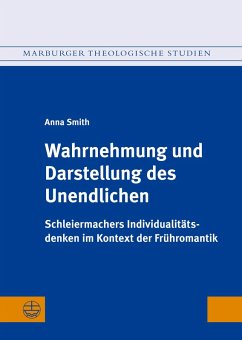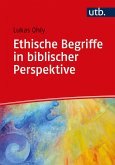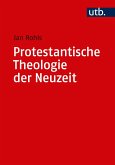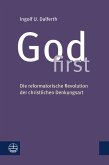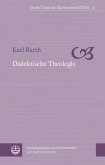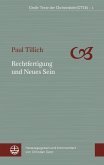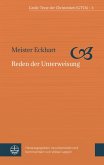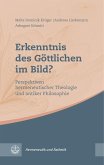An der Schwelle zum 19. Jahrhundert trägt Schleiermacher die Individualität mit seinen »Reden über die Religion« nachhaltig in sein Verständnis von Religion ein. Hier durchdringen Wahrnehmung und Darstellung einander in dem sozial konstituierten Prozess der (religiösen) Selbstbildung, in den das Individuum mit dem Erwachen seines Bewusstseins für das Unendliche eintritt. Mit seinen wenig später erscheinenden »Monologen« stellt der Autor (s)eine selbstreferenzielle Individualität als Freiheitsbewusstsein dar.Diese Dissertation bemüht sich im Hinblick auf Schleiermachers Individualitätsdenken im Kontext der Frühromantik um eine Verhältnisbestimmung von Endlichkeit und Freiheit bzw. von Selbst- und Gottesbewusstsein. Zugleich gilt die Anfrage explizit dem äußeren wie dem inneren Verhältnis der beiden genannten Schriften, das in der Forschung höchst unterschiedlich bewertet wird.
[Perception and Representation of the Infinite. Schleiermacher's Thinking on Individuality in the Context of early Romanticism]
On the cusp of the 19th century, Schleiermacher's »Reden über die Religion« made a lasting contribution to his understanding of religion. Here, perception and representation permeate each other in the socially constituted process of (religious) self-education, into which the individual enters with the awakening of his awareness of the infinite. With his following »Monologen«, the author presents a self-referential individuality as a consciousness of freedom.In view of Schleiermacher's thinking on individuality in the context of early Romanticism, this dissertation endeavors to determine the relationship between finitude and freedom or between self-consciousness and God-consciousness. At the same time, it explicitly addresses the external and internal relationship between the two aforementioned writings, which is assessed very differently in research.
[Perception and Representation of the Infinite. Schleiermacher's Thinking on Individuality in the Context of early Romanticism]
On the cusp of the 19th century, Schleiermacher's »Reden über die Religion« made a lasting contribution to his understanding of religion. Here, perception and representation permeate each other in the socially constituted process of (religious) self-education, into which the individual enters with the awakening of his awareness of the infinite. With his following »Monologen«, the author presents a self-referential individuality as a consciousness of freedom.In view of Schleiermacher's thinking on individuality in the context of early Romanticism, this dissertation endeavors to determine the relationship between finitude and freedom or between self-consciousness and God-consciousness. At the same time, it explicitly addresses the external and internal relationship between the two aforementioned writings, which is assessed very differently in research.

